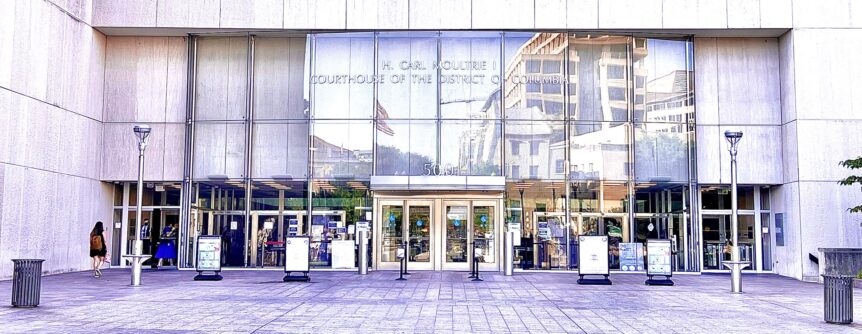
Lousy plea offers. More trials.
During the pandemic, criminal defense lawyers got spoiled with the favorable plea offers. With dockets backing up, the government was desperate to resolve cases through non-trial dispositions. One prosecutor compared it to a “fire sale.”
Those times are over.
I have noticed this. My colleagues have noticed this. And a long-time judge on the felony calendar who knows about these things commented on it just the other morning.
The judge was responding to a case in which the government offered the defendant a plea to the indictment: “With plea offers like that,” the judge said, “I guess we will be doing lots of trials.” She paused. And then directly to the government: “I hope you all are ready for that.”
The trend seems to be confirmed by a memo issued last Friday by Marisa Demeo, Presiding Judge of the Court Criminal Division. Referring to the “high volume of trials and shortage of judges,” Judge Demeo announced that D.C. Superior Court will be “resuming the older method of using the cert list for judges to try cases. Cases can be carried for up to three days before they begin.”
***
I call up the prosecutor to complain about the plea offer in a particular misdemeanor case. It is a minor case, my client is a first time offender, and I cannot believe they are not offering her a diversion program.
Worst case scenario, I tell the prosecutor, we try the case and lose. We still end up with a better sentence than what you are offering us.
The prosecutor tells me it is out of her hands. She has already raised this with her supervisor, and her supervisor said no. The prosecutor cannot comment on a broader trend. But clearly someone at the U.S. Attorney’s Office has made a policy decision to take a much harder line on plea offers.
***
For some people, accepting responsibility by pleading guilty can be reward enough. “I did this,” they say. “Why would I want to fight it?
In those cases, I ask clients to restrain themselves until I can work out the best deal possible: “Just give me a week or two,” I tell them. “I think we can do better than what the government is currently offering you.”
More often, people seek some type of incentive to give up their constitutional right to a trial.
The benefit could involve the dropping of charges. It could be reducing felony charges to misdemeanors. It could be the government’s agreement to waive a mandatory minimum sentence. Or the benefit could be the government’s agreement on a particular sentence as part of a Rule 11(c)(1)(C) plea.
Whatever the benefit, plea deals are about reducing risk.
That is why I am often reluctant to weigh in on a client’s decision: Only the client knows how much risk the client is willing to tolerate.
That is also why, instead of making a recommendation, I like to talk about options. I am fine with whatever decision the client makes as long I am confident it is an informed decision.
If you are primarily concerned about avoiding jail time, I’ll say, then the plea offer might be the right thing for you. But if you want to be vindicated or if you want to come out from under court supervision and you are willing to tolerate a little risk, then you probably want to take this to trial.
And you certainly cannot plead guilty to something that you did not do. After all, the one thing we know for certain is that if you plead guilty, you will be found guilty.
***
It can be painful to try a case in which you know you have zero chance of success. This only happens when the client is in complete denial. At the Philadelphia PD’s office, we used to call those trials “slow guilty pleas.”
At the PD’s office, we were required by circumstances and our supervisors to jam plea offers down clients’ throats.
I still can’t believe I participated in this. No wonder defendants are so distrustful of public defenders.
This is not true in D.C. For one thing, the court-appointed lawyers are paid by the hour so there is no financial incentive to push a plea. For another, there is no trial tax: D.C. judges will not punish a defendant for exercising his/her constitutional right to trial.
In my experience, clients rarely regret having taken a case to trial. Even when they lose. Even when they are being led out of the courtroom in handcuffs.
The pleas are what they regret, even years later. “My lawyer talked me into that one,” they will say as I review their criminal record with them. “I wish I hadn’t listened to him.”
***
As a junior lawyer, I used to admire the experienced criminal defense lawyers who could find a sliver of light in any case and then capitalize on it. Something minor grows into reasonable doubt.
With experience, I now have confidence in my own ability to find that sliver of light. There is always something to work with.
I have a great slate of cases pending now. I am ready to try them.
